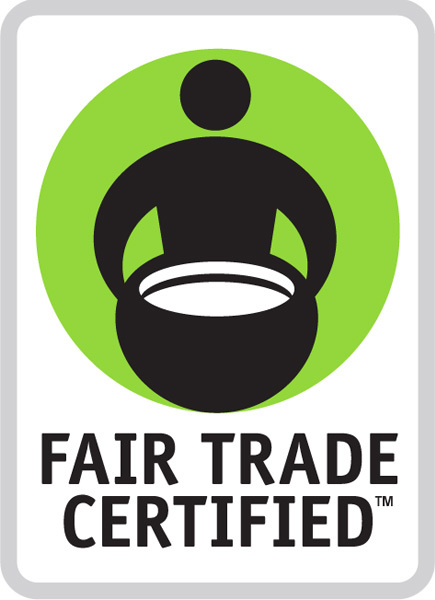Fair Trade Certified Sales Up 63 Percent
10,000 Fair Trade Certified Products Now on U.S. Store Shelves; New Ingredients Policy for Product Transparency & Greater Impact for Farmers and Workers
(3BL Media / theCSRfeed) Oakland, CA - September 21, 2011 - Fair Trade USA, the leading U.S. certifier of Fair Trade products, today released the latest SPINS sales figures, showing overwhelming growth across mainstream, gourmet and specialty grocery channels. The nonprofit organization also announced an updated ingredients policy to dramatically increase product transparency and maximize impact for farmers and workers. Additionally, Fair Trade USA announced that there are now 10,000 Fair Trade Certified™ products on U.S. stores shelves through its more than 800 industry partners committed to sustainable sourcing.
SPINS, the first company to offer Natural Products sales data to the industry, reports sales of Fair Trade Certified products at mainstream grocery stores grew by 87 percent in the second quarter over the previous quarter. The specialty and gourmet channels grew 32 percent, for an overall growth rate of 63 percent.
“In Fair Trade, sales correlate directly to impact in farming communities, so we’re thrilled to see growth across all channels,” said Cate Baril, Director of Business Development, Grocery and Ingredients for Fair Trade USA, a 501(c)(3) nonprofit organization. “As mainstream brands with broad distribution—like Ben and Jerry’s, Honest Tea and Larabar—continue to convert their ingredients to Fair Trade and satisfy the growing demand for sustainably-produced goods, we’ll continue to see sales grow.”
To generate impact for farmers and workers, Fair Trade USA helps U.S. companies source Fair Trade Certified ingredients for food and body care products, including sugar, cocoa, vanilla and shea butter among others, to be used in combination with non-certifiable ingredients, such as water, milk, and eggs. Now, after testing and learning since 2003, Fair Trade USA introduces a new U.S. policy for “Multiple Ingredients Products” or “ingredients policy.” The policy will maximize impact for producers by: encouraging more companies to convert more ingredients to Fair Trade Certified supply sources; and promoting transparency to ensure that consumers know what they are buying.
The new ingredients policy applies to all food and personal care products. It requires a minimum of 25 percent Fair Trade Certified content for a product to use the “Fair Trade Certified” label on the front of the package; requires between 10 and 24 percent Fair Trade Certified content for a product to use the “Fair Trade Certified Ingredients” label on the front of the package; and for products with less than 10 percent, allows a back-panel ingredients note—such as “Fair Trade Certified Sugar.” The percentage of ingredients is measured by dry weight.
“It’s critical that consumers see the Fair Trade Certified label as a symbol of social and environmental integrity,” said Mary Jo Cook, Vice President of Marketing and Business Development for Fair Trade USA. “Therefore, we have established the new policy to promote consumer confidence through greater label disclosure and enhanced online resources.”
Transparency efforts also extend to the brand or manufacturers’ websites. Industry partners will clearly list the Fair Trade Certified content for all products and the specific ingredients that are Fair Trade Certified. Partners also will direct consumers to http://www.fairtradeusa.org/certification/producers/ingredients to learn more about what constitutes a Fair Trade Certified product.
Fair Trade is a global movement to alleviate poverty in ways that are socially and environmentally sustainable. Fair Trade certification from Fair Trade USA helps businesses and consumers make every purchase matter because the quality products they buy improve lives and protect the environment.
Aided by this tremendous increase in consumer sales, Fair Trade USA and its more than 800 partners have generated more than $220 million in additional income for farmers and workers since 1998.
To continue this momentum, October 1, 2011 kicks-off Fair Trade USA’s national consumer awareness campaign, Fair Trade Month. The annual effort aims to significantly increase awareness and sales of Fair Trade Certified products to drive greater impact for farmers. To learn more, visit www.FairTradeUSA.org.
Fair Trade USA (previously TransFair USA), a nonprofit organization, is the leading third-party certifier of Fair Trade products in the United States. Fair Trade USA audits and certifies transactions between U.S. companies and their international suppliers to guarantee that the farmers and workers producing Fair Trade Certified goods were paid fair prices and wages, work in safe conditions, protect the environment, and receive community development funds to empower and uplift their communities. Fair Trade USA educates consumers, brings new manufacturers and retailers into the Fair Trade system, and provides farming communities with tools, training and resources to thrive as international businesspeople. Visit www.FairTradeUSA.org for more information.
SPINS (www.spins.com) is the first company to offer Natural Products sales data to the industry. Established in 1995, SPINS is now the premier provider of industry reporting and consulting services for this rapidly expanding sector. SPINS’ comprehensive offering includes retail measurement services, content-based reporting, consumer information and consulting services.
Editors Notes
-
Growth rates for the 12 week period ending June 11, 2011 over the 12 week period ending March 19, 2011
-
Data includes all food, drug, mass merchandisers and natural food stores; excludes Sam’s Club, Trader Joe’s, Whole Foods Markets, Wal-Mart, cafes/restaurants and private labels
-
The majority of Fair Trade Certified product sales come from coffee sold brewed, private label, Wal-Mart and Whole Foods Markets.
FTUS16854


